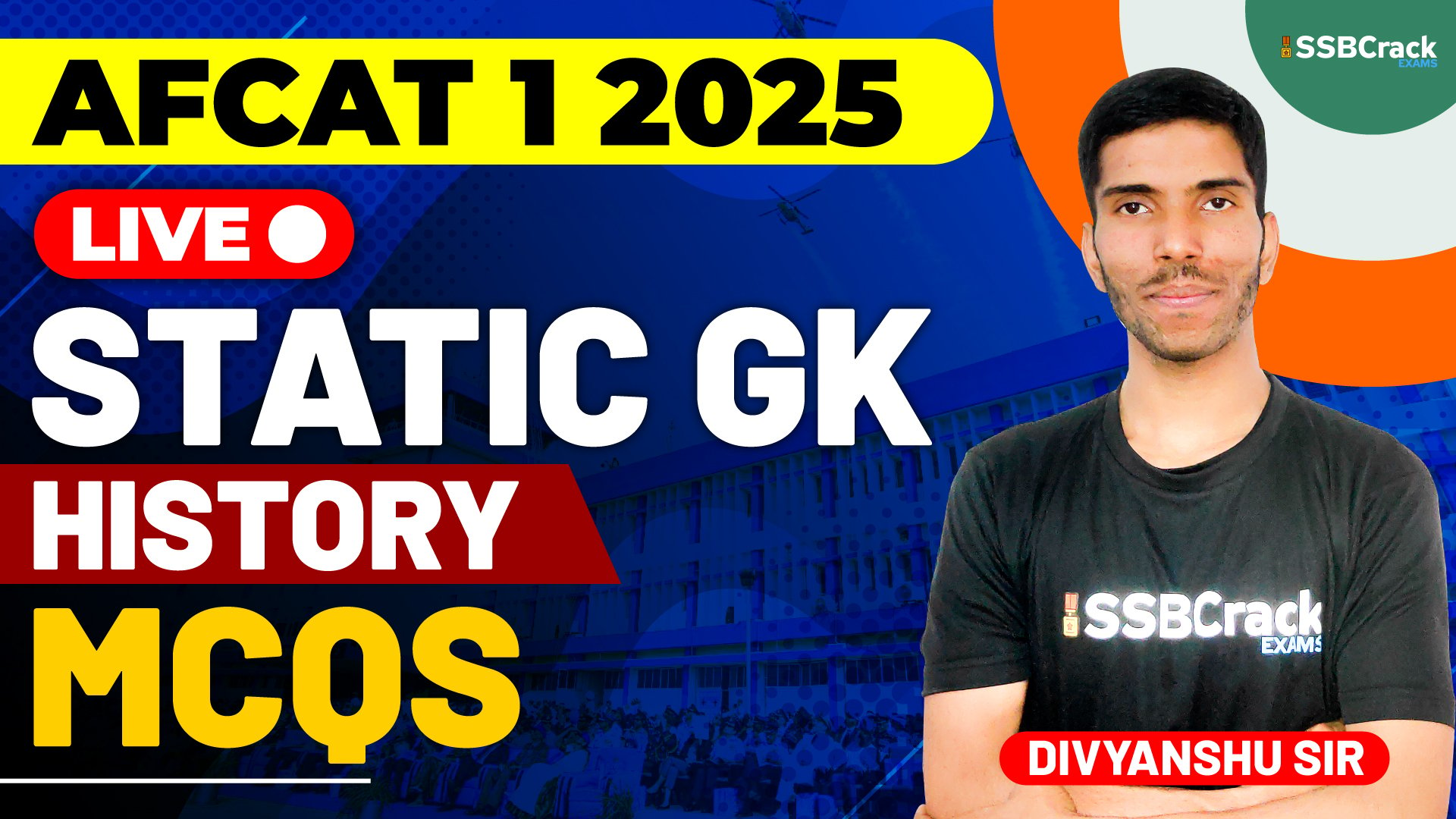History is a crucial part of the Static GK section in the AFCAT 1 2025 exam. Questions are often asked from Ancient, Medieval, and Modern Indian History, as well as World History. This article covers the most important historical events, dynasties, movements, and personalities that candidates should focus on for the exam.
AFCAT 1 2025 Exam Static GK History MCQs
1. Ancient Indian History
Important Dynasties & Empires
| Dynasty/Empire | Founder | Key Contributions |
|---|---|---|
| Maurya Empire (321–185 BCE) | Chandragupta Maurya | Largest Indian empire; Kautilya’s Arthashastra |
| Gupta Empire (319–550 CE) | Chandragupta I | Golden Age of India; advancements in science, art & culture |
| Chola Dynasty (9th–13th Century CE) | Vijayalaya Chola | Naval dominance; Dravidian architecture |
| Pallava Dynasty (3rd–9th Century CE) | Simhavishnu | Rock-cut temples of Mahabalipuram |
| Harsha Empire (606–647 CE) | Harshavardhana | Last great Hindu emperor of Northern India |
Important Ancient Texts & Their Authors
| Text | Author | Theme |
|---|---|---|
| Arthashastra | Kautilya (Chanakya) | Political & Economic policies |
| Ramayana | Valmiki | Hindu epic |
| Mahabharata | Ved Vyasa | Hindu epic |
| Abhijnanasakuntalam | Kalidasa | Sanskrit drama |
2. Medieval Indian History
Important Dynasties & Rulers
| Dynasty | Founder | Famous Rulers | Contributions |
|---|---|---|---|
| Delhi Sultanate (1206–1526 CE) | Qutb-ud-din Aibak | Alauddin Khilji, Muhammad bin Tughlaq | Expansion, Tughlaqabad fort |
| Mughal Empire (1526–1857 CE) | Babur | Akbar, Aurangzeb, Shah Jahan | Taj Mahal, Red Fort, centralized administration |
| Vijayanagar Empire (1336–1646 CE) | Harihara & Bukka | Krishnadevaraya | Hampi temples, South Indian culture |
Important Battles in Medieval India
| Battle | Year | Parties Involved | Outcome |
|---|---|---|---|
| 1st Battle of Panipat | 1526 | Babur vs. Ibrahim Lodi | Babur established Mughal rule |
| Battle of Talikota | 1565 | Vijayanagar Empire vs. Deccan Sultanates | End of Vijayanagar Empire |
| Battle of Haldighati | 1576 | Akbar vs. Maharana Pratap | Mughal victory |
3. Modern Indian History
British Rule & Revolts
| Event | Year | Significance |
|---|---|---|
| Battle of Plassey | 1757 | British control over Bengal |
| Battle of Buxar | 1764 | Strengthened British rule in India |
| Revolt of 1857 | 1857 | First war of Indian independence |
Indian National Movement
| Phase | Key Leaders | Movements |
|---|---|---|
| Early Nationalism (1885-1915) | Dadabhai Naoroji, Gopal Krishna Gokhale | Formation of Indian National Congress (INC) |
| Gandhian Phase (1915-1947) | Mahatma Gandhi, Nehru, Sardar Patel | Non-Cooperation, Civil Disobedience, Quit India |
| Revolutionary Movements | Bhagat Singh, Subhas Chandra Bose | Azad Hind Fauj, HSRA |
Major Events of the Indian Freedom Struggle
| Event | Year | Details |
|---|---|---|
| Partition of Bengal | 1905 | British “Divide & Rule” policy |
| Jallianwala Bagh Massacre | 1919 | General Dyer’s firing on peaceful protesters |
| Dandi March (Salt Satyagraha) | 1930 | Gandhi’s protest against British salt monopoly |
| Quit India Movement | 1942 | Demand for immediate British withdrawal |
| Indian Independence | 1947 | Freedom from British rule |
4. World History (Important Events & Revolutions)
| Event | Year | Significance |
|---|---|---|
| French Revolution | 1789 | Rise of democracy and human rights |
| American War of Independence | 1775-1783 | Establishment of the USA |
| World War I | 1914-1918 | Led to Treaty of Versailles |
| Russian Revolution | 1917 | Rise of communism under Lenin |
| World War II | 1939-1945 | End of colonialism, formation of UN |
Conclusion
History plays a vital role in the AFCAT 1 2025 exam, and candidates must focus on major dynasties, battles, movements, and revolutions. A thorough understanding of Ancient, Medieval, and Modern Indian History, along with key world events, will help in scoring well in the Static GK section.








